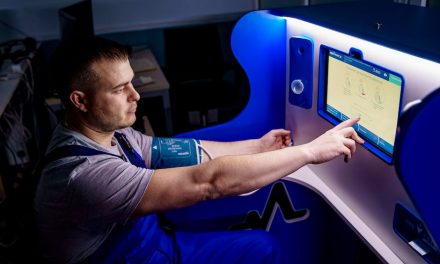Table of Contents
- Introduction
- Understanding the Importance of Discussing Weaknesses in a Job Interview
- Effective Strategies for Addressing Weaknesses in a Job Interview
- Tips for Presenting Weaknesses as Opportunities for Growth in a Job Interview
- Common Mistakes to Avoid When Discussing Weaknesses in a Job Interview
- Q&A
- Conclusion
Mastering the art of discussing weaknesses in job interviews.
Introduction
When it comes to job interviews, one common question that often catches candidates off guard is discussing their weaknesses. While it may seem counterintuitive to highlight your flaws, addressing this question effectively can actually demonstrate self-awareness, growth mindset, and the ability to overcome challenges. In this article, we will explore some tips on how to discuss your weaknesses in a job interview.
Understanding the Importance of Discussing Weaknesses in a Job Interview

Understanding the Importance of Discussing Weaknesses in a Job Interview
Job interviews can be nerve-wracking experiences for many individuals. The pressure to impress the interviewer and secure the job can often lead candidates to focus solely on highlighting their strengths and downplaying their weaknesses. However, discussing weaknesses in a job interview can actually be a strategic move that demonstrates self-awareness, honesty, and a willingness to grow and improve.
One of the main reasons why discussing weaknesses is important in a job interview is because it allows the interviewer to assess a candidate’s self-awareness. Employers value individuals who can accurately identify their areas for improvement and take proactive steps to address them. By openly discussing weaknesses, candidates can demonstrate that they have a realistic understanding of their own abilities and are not afraid to acknowledge areas where they may need additional support or development.
Furthermore, discussing weaknesses in a job interview can also showcase a candidate’s honesty and integrity. Employers appreciate candidates who are transparent about their limitations and do not attempt to present themselves as flawless. This level of honesty can build trust between the candidate and the interviewer, as it shows that the candidate is not trying to deceive or mislead the employer. It also sets the foundation for open and honest communication in the workplace, which is crucial for building strong working relationships and fostering a positive work environment.
In addition to self-awareness and honesty, discussing weaknesses in a job interview can also demonstrate a candidate’s willingness to grow and improve. Employers are often looking for individuals who are open to feedback and actively seek opportunities for self-improvement. By discussing weaknesses, candidates can convey their commitment to personal and professional growth. They can highlight specific steps they have taken in the past to address their weaknesses, such as attending training programs or seeking mentorship. This shows the employer that the candidate is proactive and motivated to continuously develop their skills and knowledge.
However, it is important to approach the discussion of weaknesses in a job interview with caution. Candidates should avoid mentioning weaknesses that are directly related to the requirements of the job or that could raise red flags for the employer. Instead, they should focus on discussing weaknesses that are not critical to the role and can be improved upon with time and effort. It is also important to provide specific examples of how the candidate has worked to overcome or mitigate their weaknesses, as this demonstrates their ability to take action and make positive changes.
In conclusion, discussing weaknesses in a job interview is an important aspect of the hiring process. It allows candidates to showcase their self-awareness, honesty, and willingness to grow and improve. By openly acknowledging their areas for improvement and providing examples of how they have addressed them in the past, candidates can position themselves as strong contenders for the job. However, it is crucial to approach this discussion with caution and avoid mentioning weaknesses that could raise concerns for the employer. With the right approach, discussing weaknesses can be a powerful tool for impressing interviewers and securing the job.
Effective Strategies for Addressing Weaknesses in a Job Interview
Job interviews can be nerve-wracking experiences, especially when it comes to discussing your weaknesses. However, addressing your weaknesses in a job interview is an essential part of the process. Employers want to see how self-aware you are and how you handle challenges. In this article, we will discuss effective strategies for addressing weaknesses in a job interview.
Firstly, it is important to remember that everyone has weaknesses. No one is perfect, and employers understand that. The key is to be honest and self-aware when discussing your weaknesses. However, it is also crucial to frame your weaknesses in a positive light. Instead of simply stating your weaknesses, focus on how you have worked to improve them.
One effective strategy is to choose a weakness that is not directly related to the job you are applying for. For example, if you are applying for a sales position, you could discuss how you used to struggle with public speaking but have taken steps to improve by joining a toastmasters club. This shows the employer that you are proactive and willing to work on your weaknesses.
Another strategy is to discuss a weakness that you have already made significant progress in overcoming. This demonstrates to the employer that you are self-aware and have the ability to grow and develop. For instance, you could mention how you used to struggle with time management but have implemented a new system that has greatly improved your productivity.
When discussing your weaknesses, it is important to avoid being too self-critical. While it is important to be honest, you don’t want to give the impression that you lack confidence or are incapable of handling challenges. Instead, focus on how you have learned from your weaknesses and how they have helped you grow both personally and professionally.
It can also be helpful to provide specific examples when discussing your weaknesses. This allows the employer to see how you have handled challenges in the past and how you have grown as a result. For example, if you are discussing a weakness in teamwork, you could mention a specific project where you initially struggled to work with others but eventually learned to collaborate effectively.
In addition to discussing your weaknesses, it is important to highlight your strengths. This helps to balance out the conversation and show the employer that you have a lot to offer. For example, if you are discussing a weakness in organization, you could mention how your attention to detail and problem-solving skills have helped you excel in other areas.
Finally, it is important to practice discussing your weaknesses before the interview. This will help you feel more confident and prepared. Consider asking a friend or family member to conduct a mock interview with you and provide feedback on your responses. This will allow you to refine your answers and ensure that you are effectively addressing your weaknesses.
In conclusion, discussing your weaknesses in a job interview can be challenging, but it is an important part of the process. By being honest, framing your weaknesses in a positive light, and providing specific examples, you can effectively address your weaknesses and demonstrate your ability to grow and develop. Remember to also highlight your strengths and practice discussing your weaknesses beforehand. With these strategies, you can navigate the topic of weaknesses with confidence and impress potential employers.
Tips for Presenting Weaknesses as Opportunities for Growth in a Job Interview
Discussing your weaknesses in a job interview can be a daunting task. After all, you want to present yourself in the best possible light and convince the interviewer that you are the perfect fit for the position. However, it is important to remember that everyone has weaknesses, and being able to discuss them in a thoughtful and constructive manner can actually work in your favor. By presenting your weaknesses as opportunities for growth, you can demonstrate your self-awareness, willingness to learn, and ability to overcome challenges.
One of the key tips for presenting weaknesses as opportunities for growth is to choose the right weakness to discuss. It is important to select a weakness that is relevant to the job you are applying for, but also one that you have made progress in addressing. This shows the interviewer that you are proactive and actively working on self-improvement. For example, if you are applying for a position that requires strong organizational skills, you could discuss how you used to struggle with time management but have since implemented a system that has greatly improved your efficiency.
When discussing your weakness, it is important to be honest and transparent. However, it is equally important to frame your weakness in a positive light. Instead of simply stating your weakness, explain how you have taken steps to address it and what you have learned from the experience. This shows the interviewer that you are not only aware of your weaknesses but also actively working on improving them. For example, if you struggle with public speaking, you could discuss how you have joined a Toastmasters club to improve your communication skills and have seen significant progress in your ability to confidently present in front of others.
Another tip for presenting weaknesses as opportunities for growth is to highlight how your weakness has actually helped you develop other skills or qualities. This demonstrates your ability to turn a negative into a positive and shows the interviewer that you are adaptable and resilient. For example, if you are not naturally detail-oriented, you could discuss how this has forced you to develop strong problem-solving skills and the ability to see the bigger picture.
It is also important to emphasize your willingness to learn and grow. Discuss any additional steps you have taken or are planning to take to further address your weakness. This could include taking relevant courses, seeking mentorship, or actively seeking feedback from colleagues. By demonstrating your commitment to self-improvement, you show the interviewer that you are not only aware of your weaknesses but also actively working on overcoming them.
In conclusion, discussing your weaknesses in a job interview can be a challenging task. However, by presenting your weaknesses as opportunities for growth, you can demonstrate your self-awareness, willingness to learn, and ability to overcome challenges. Remember to choose the right weakness to discuss, be honest and transparent, frame your weakness in a positive light, highlight how it has helped you develop other skills, and emphasize your willingness to learn and grow. By following these tips, you can turn a potentially negative topic into a positive opportunity to showcase your strengths and potential as a candidate.
Common Mistakes to Avoid When Discussing Weaknesses in a Job Interview
Common Mistakes to Avoid When Discussing Weaknesses in a Job Interview
Job interviews can be nerve-wracking experiences, especially when it comes to discussing your weaknesses. It’s natural to want to present yourself in the best possible light, but it’s important to remember that employers are not looking for perfection. In fact, being able to discuss your weaknesses honestly and effectively can actually work in your favor. However, there are some common mistakes that many job seekers make when discussing their weaknesses in an interview. By avoiding these pitfalls, you can ensure that you make a positive impression on your potential employer.
One common mistake that job seekers make is being too vague when discussing their weaknesses. It’s important to be specific and provide concrete examples of how you have addressed your weaknesses in the past. For example, instead of saying, “I’m not very organized,” you could say, “In the past, I struggled with staying organized, but I have implemented a system of using a digital calendar and task management software to help me stay on top of my responsibilities.”
Another mistake to avoid is being too negative when discussing your weaknesses. While it’s important to be honest, it’s also important to frame your weaknesses in a positive light. Instead of focusing on the negative aspects of your weaknesses, try to highlight how you have worked to improve upon them. For example, instead of saying, “I’m not a good public speaker,” you could say, “Public speaking used to be a challenge for me, but I have taken public speaking courses and joined a Toastmasters club to improve my skills.”
One common mistake that job seekers make is trying to turn a weakness into a strength. While it’s important to show that you are proactive in addressing your weaknesses, it’s also important to be honest about areas where you still have room for improvement. Trying to turn a weakness into a strength can come across as disingenuous and may raise red flags for potential employers. Instead, focus on how you have taken steps to address your weaknesses and what you have learned from the experience.
Another mistake to avoid is being too self-critical when discussing your weaknesses. While it’s important to be honest, it’s also important to maintain a level of self-confidence and self-assurance. Instead of dwelling on your weaknesses, try to shift the focus to your strengths and how they outweigh any weaknesses you may have. For example, instead of saying, “I’m not very good at multitasking,” you could say, “While multitasking is not my strongest suit, I excel at prioritizing tasks and staying focused on one task at a time, which allows me to deliver high-quality work.”
In conclusion, discussing your weaknesses in a job interview can be a challenging task. However, by avoiding common mistakes such as being too vague, too negative, trying to turn weaknesses into strengths, and being too self-critical, you can present yourself in a positive and honest light. Remember, employers are not looking for perfection, but rather for candidates who are self-aware and willing to learn and grow. By addressing your weaknesses honestly and effectively, you can demonstrate your ability to overcome challenges and continuously improve yourself, making a strong impression on your potential employer.
Q&A
1. How should I approach discussing my weaknesses in a job interview?
Be honest and self-aware, choose weaknesses that are not critical to the job, and focus on how you are actively working to improve them.
2. What are some examples of weaknesses that can be discussed in a job interview?
Examples include being overly detail-oriented, struggling with public speaking, being too self-critical, or having difficulty delegating tasks.
3. How can I turn my weaknesses into strengths during a job interview?
Highlight how you have taken steps to address your weaknesses, such as attending public speaking courses or seeking feedback from colleagues to improve your communication skills.
4. Should I mention weaknesses that are directly related to the job requirements?
It is generally advisable to avoid mentioning weaknesses that are directly related to the job requirements, as it may raise concerns about your ability to perform the role effectively.
Conclusion
In conclusion, discussing your weaknesses in a job interview requires careful consideration and preparation. It is important to be honest and self-aware, while also highlighting your efforts to improve and overcome these weaknesses. By framing weaknesses as areas for growth and development, you can demonstrate your willingness to learn and adapt in a professional setting. Additionally, focusing on how you have successfully managed or mitigated your weaknesses in the past can showcase your problem-solving skills and resilience. Overall, discussing weaknesses in a job interview can be an opportunity to showcase your self-awareness, growth mindset, and commitment to personal and professional development.





